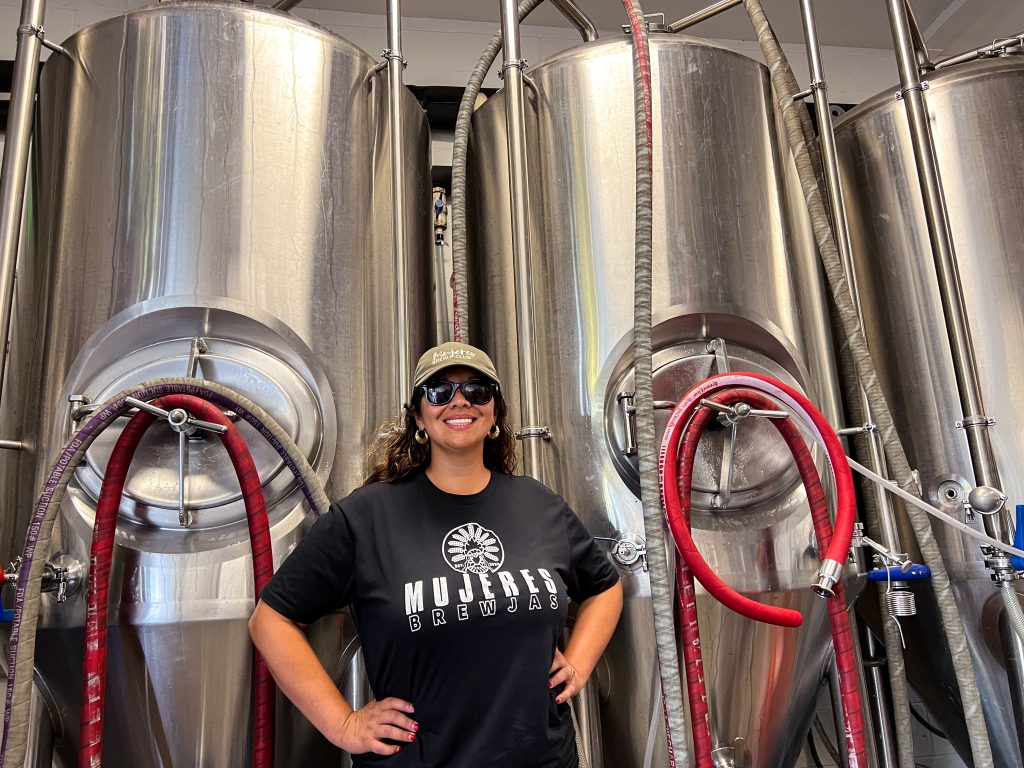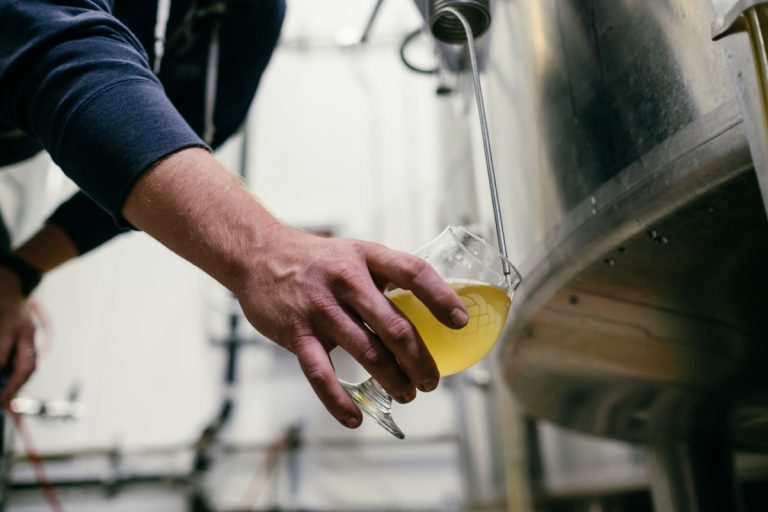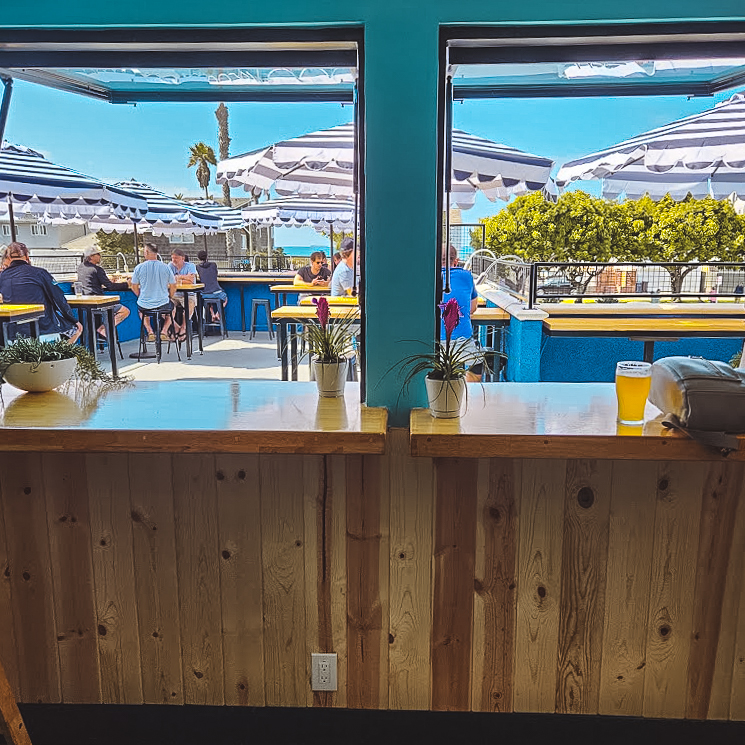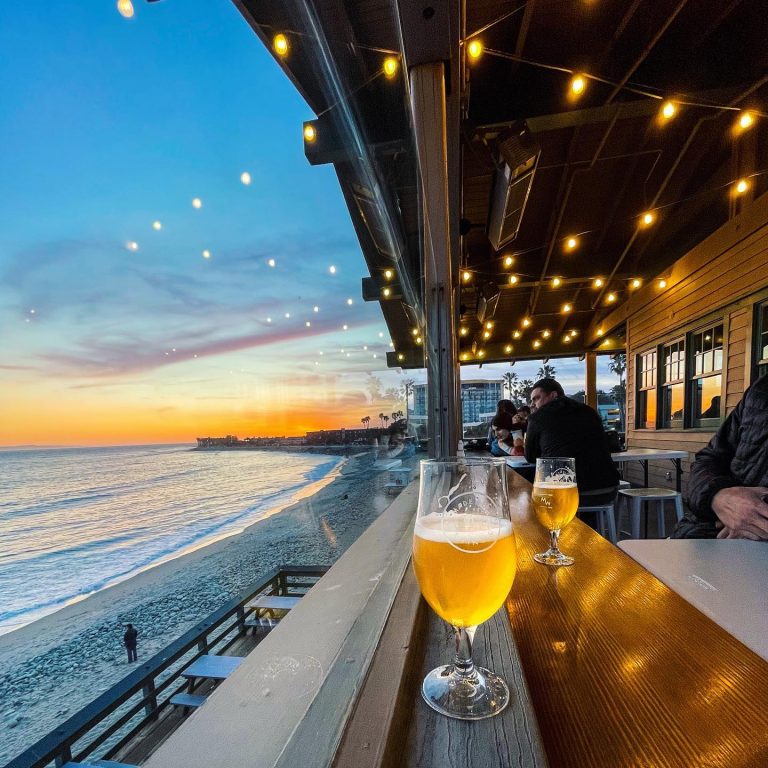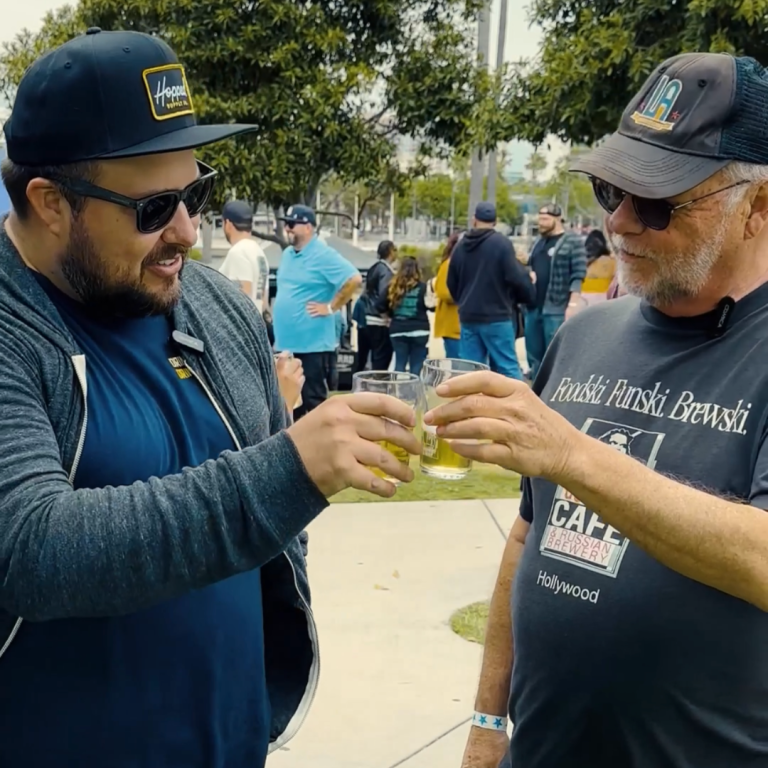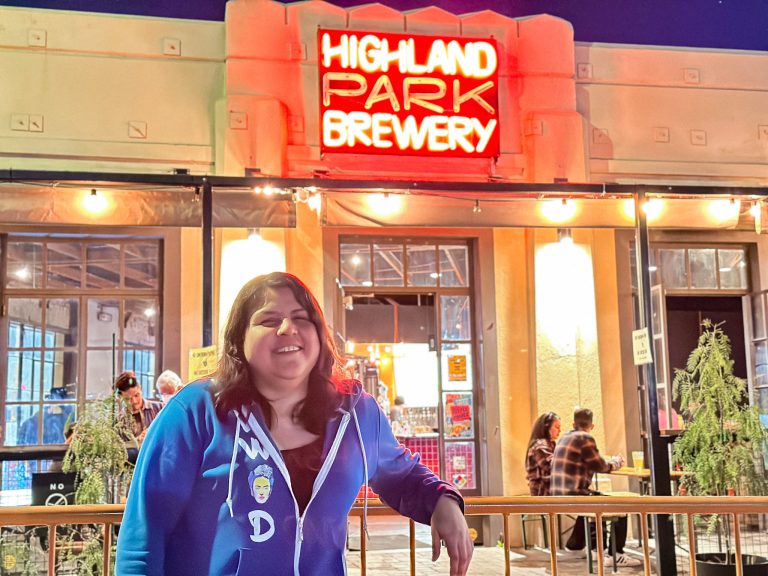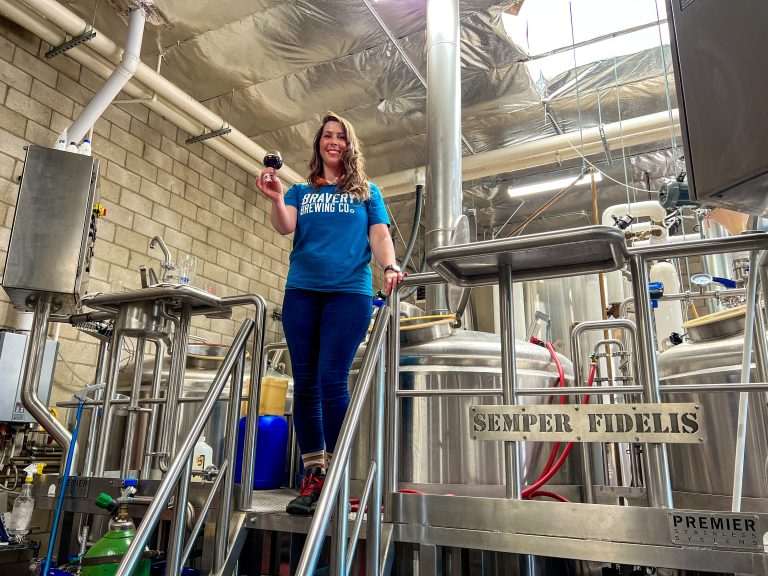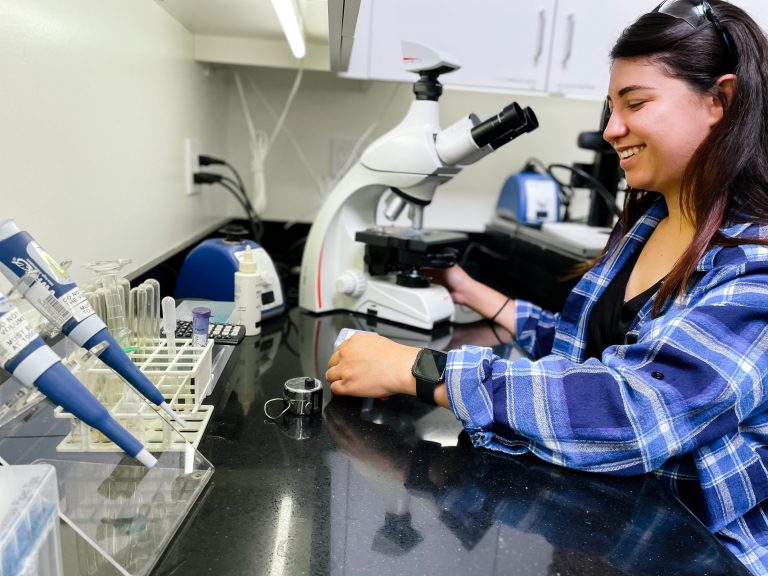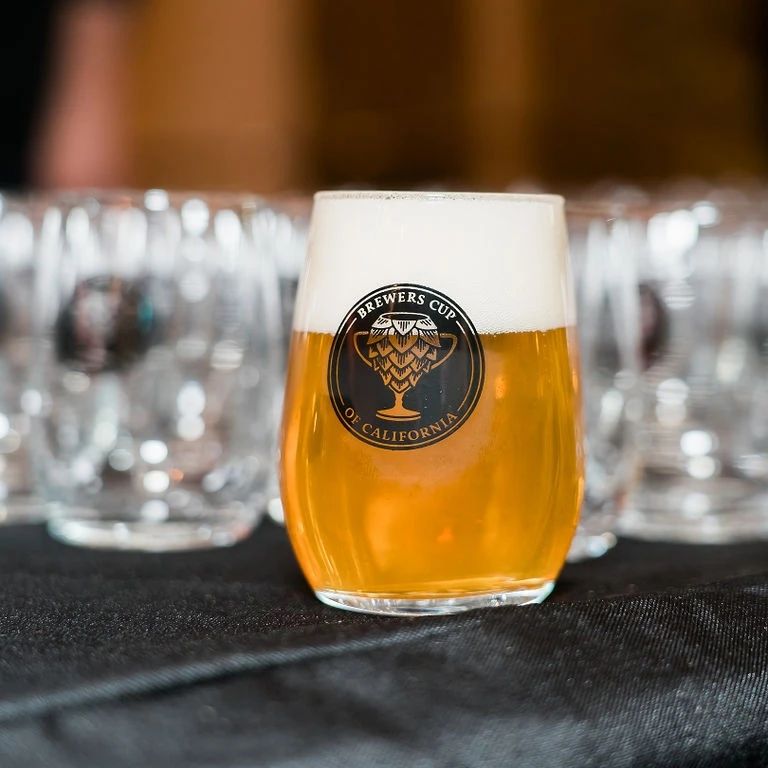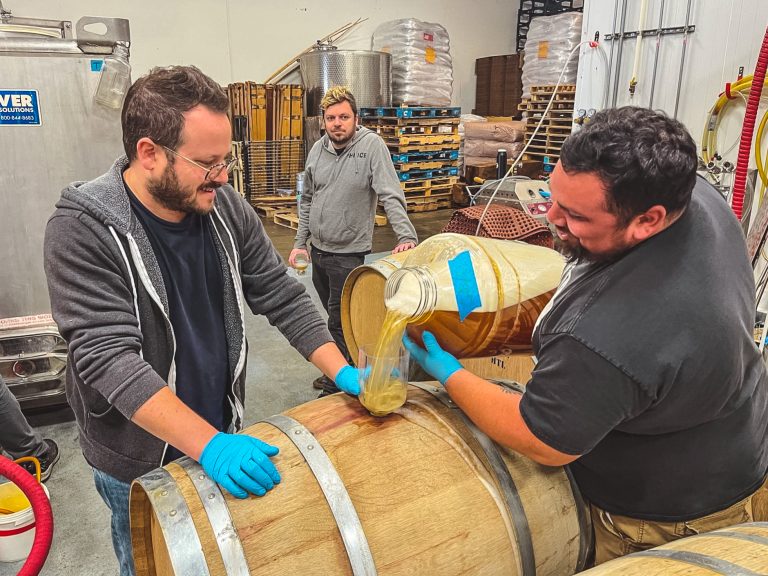We met Carmen Velasco-Favela inside Mujeres Brew House, an all-female-run and Latina-owned brewery in San Diego. Carmen is the founder of Mujeres Brew House and the COO of Border X Brewing, which was co-founded by her husband David Favela.
This interview has been lightly edited for clarity and length.
HOPPED: How did you first get started in the craft beer industry?
CARMEN: I basically married into the craft beer industry with my husband, and so my role at Border X was helping out in whatever way I could. In the beginning, this was on the marketing side and events side and my position evolved with time.
Little by little, I took on more responsibility at the brewery, and I became very passionate about celebrating our culture through craft beer. The beers that Border X makes are the kind of beers that I had no idea you could make. In either 2017 or 2018, we were doing market research to try and figure out who our customers at Border X were, and we realized that the majority of customers were actually women.
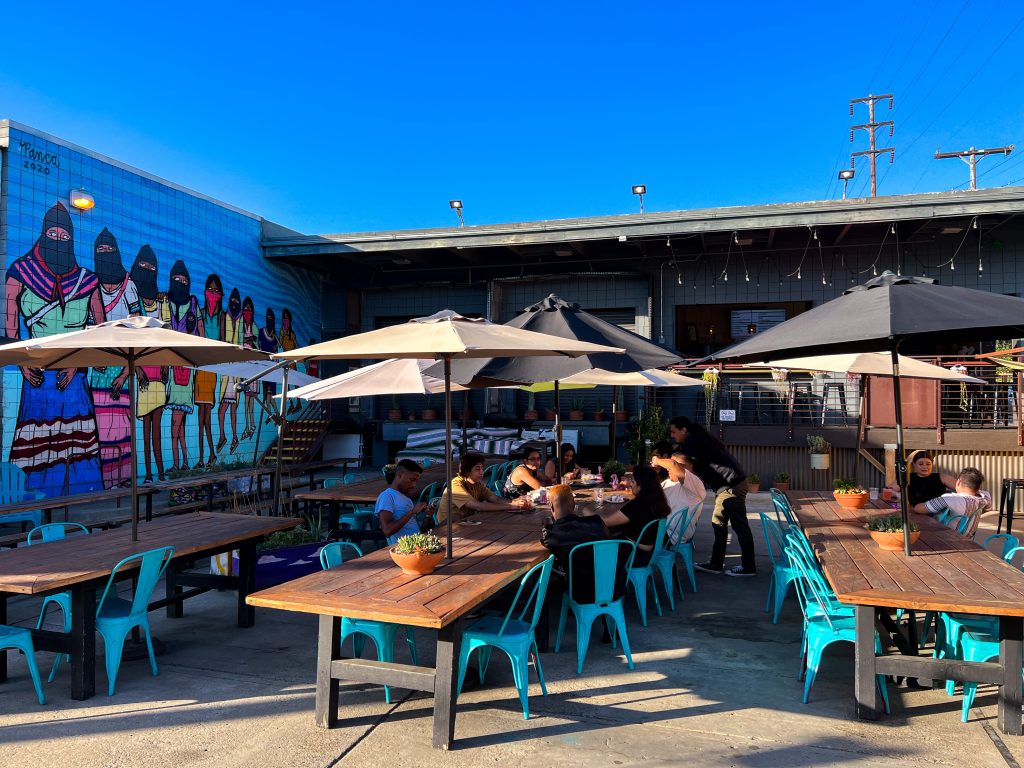
So I started thinking about what we could do to honor our audience. We started with a few female-forward events, and then during Women’s Month, we started a Women’s Brew Club. I wanted it to be an educational series to not only teach other women, but also myself. Even though I was doing events and working at the brewery, I didn’t really understand how to make beer. I had been working in the front of the house but didn’t really know what it was like brewing beer behind the scenes.
I hired [former employee] Esthela [Davila] as a host as she had been very involved in the craft beer industry. She was Latina, so I figured she’d be the right person to bring on to start this project. We had over 50 women coming to each session for this six-month series. It was beautiful to see all of these women get together and build relationships and learn about craft beer.
HOPPED: So when you launched this educational series and Women’s Brew Club at Border X, what was the different experience level of women in the club?
CARMEN: We had women of all different ages. We had young women who had just turned 21 all the way to women in their 70s. We had women come with their moms and their sisters. We had a woman coming all the way out here from Temecula for the education series.
There was nothing like it for women, especially women of color. When we started the series we didn’t know what to expect. So we launched it and hoped for the best and yeah, we sold out immediately. What was originally 10 spaces ended up maxing out at 50. That was the beginning of knowing there was a need for a space for women in craft beer. And not only just a space to learn, but to empower them to get jobs in the craft beer industry.
HOPPED: So what was the catalyst to go from hosting a women’s education series at Border X to actually opening Mujeres Brew House?
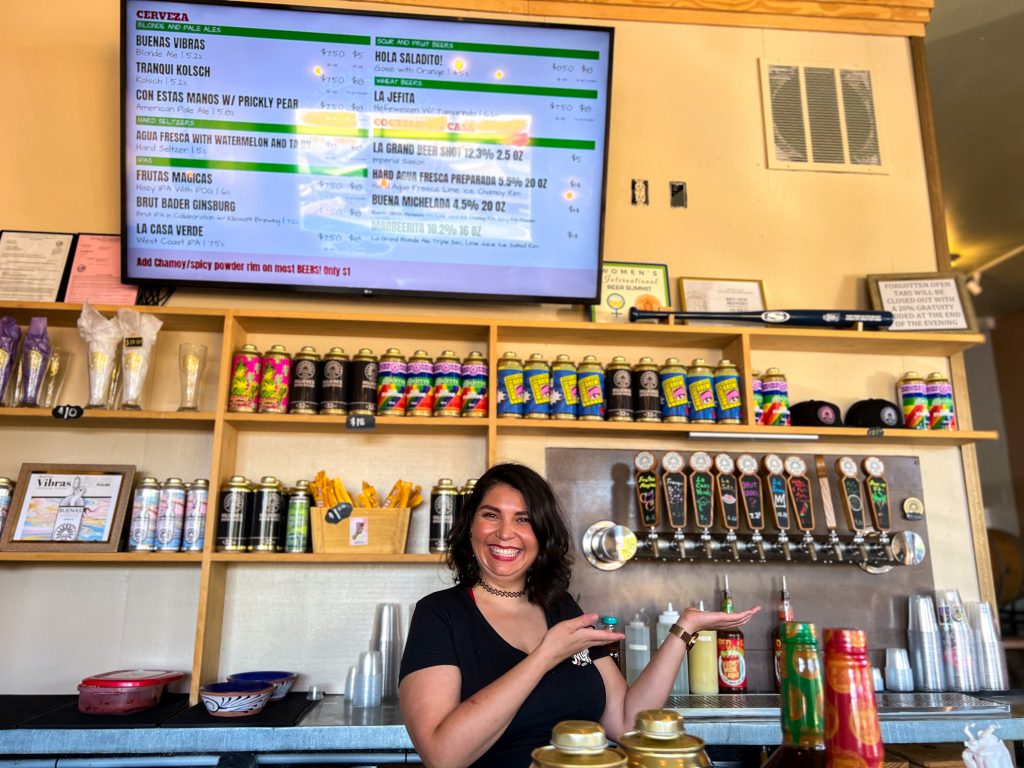
CARMEN: We never planned to open up a brewery for the club. It was like our weekly or monthly event for women. But then the pandemic hit. I had to stop the club meetings. And that was rough because all of these women were so excited to be there. I mean, they built relationships, they felt empowered, and some of them got jobs. I couldn’t see myself just canceling the club because of the pandemic.
There had been another brewery in this space which Mujeres occupies before and it had been vacant for almost a year prior to the pandemic. I started talking to Esthela about the potential to take over that space and my husband overheard me. He was like, “Wait a minute. That actually sounds like a really good idea.”
And so one thing led to another and within 24 hours we met the building owners. For context, my background is as a real estate agent, I mean, I’m just helping my husband here, having a good time. All of a sudden I’m sitting down getting ready to sign a contract for a brewery for women. I still didn’t even know how to brew a beer like, somebody stop me, this is insane. But my husband … would go to the club meetings with me and he saw the passion of these women getting together. It was a no-brainer to him.
For me, it took a second. I’m looking at him and sick to my stomach for a whole week. Never in my dreams did I ever think, “Oh, someday the club would have a brewery.” The building owners were ecstatic to think women would take over the space and continue our educational series. So now we have a brewhouse and take the whole experience to a whole nother level. The place was literally turnkey, so everything was already here and so fortuitous. Border X is the reason for this project, they sponsored it and believed in it, and we are thankful to them for helping to make that happen.
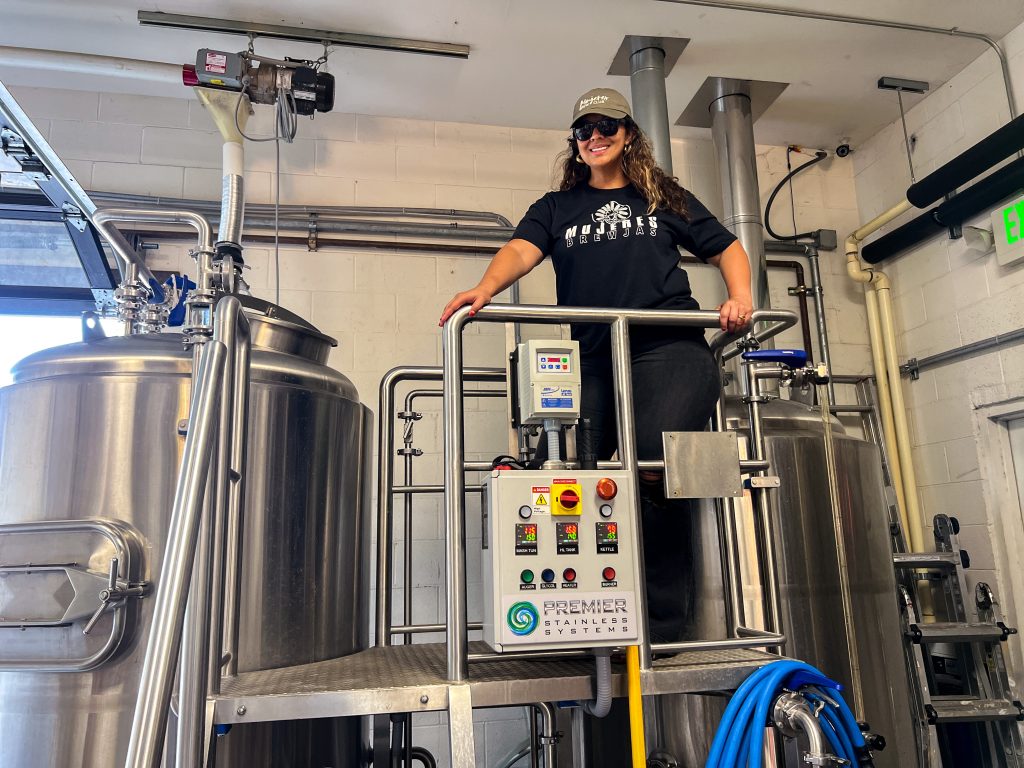
HOPPED: What was the reaction of the club to finding out about Mujeres?
CARMEN: We notified the girls from the club immediately and told them. It was so beautiful. I mean, we all cried. It was exciting. Girls from the group showed up and were excited to help in any way possible. They wanted to work here and be part of it. Some of them had some experience. Some of them didn’t. It really just came down to passion.
A lot of these movements for women were taking place around the country, but we weren’t just talking about creating a space for women. We were doing it. It was a crazy idea, and now this crazy idea is two years later, but the girls you saw at the front? They are from the club, and it was their first time working behind the bar and they are still here. And it’s so beautiful to see.
HOPPED: How did the transition from Border X to Mujeres go?
CARMEN: We were just rolling with it. There was no formula. I was able to rely on my husband for a lot but honestly, it was a smooth transition here. It was very organic and very natural, not only with the team and club but with the relationship with the community. So the fact that we already built a relationship in the community with Border X, in addition to now having a huge outdoor space for people to gather during the community, we were lucky.
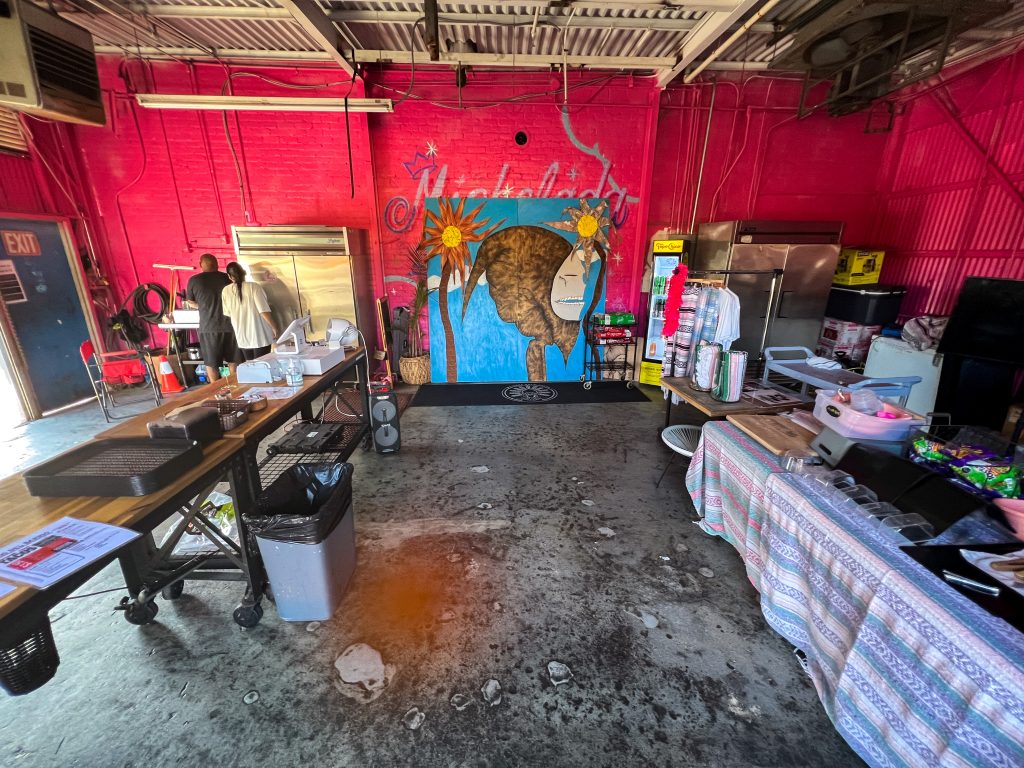
We started marketing the project before we could even serve beer. And it wasn’t just getting our club members involved, but the community too. The minute we were able to serve a beer, people were here to support. Honestly, I think just the fact that it was the first all-female-led brewery in San Diego was just very powerful and impactful to San Diego.
HOPPED: How do you feel like you have been able to carry on the spirit of women’s empowerment and women’s education in this new brew space?
CARMEN: My upbringing wasn’t easy, and I’ve gone through some major hardships. So whenever I can empower or uplift another woman, it just makes me really happy. And that was one of the reasons why I wanted to do the club, which flourished into something amazing. The girls from the club, they’re the ones that created this. It’s definitely not just me. It’s definitely not just [Mujeres brewer] Sam Olson. There’s a whole business on the front line and marketing and everything, but collectively we’ve been able to create an amazing space here.
Once we had this space, the next step was trying to learn how to stabilize and operate a brewery. So trying to understand budgeting and cost and all that kind of stuff is kind of where we’re at now and kind of like stabilizing a little bit.
My plan for winter or fall is to create a 30-day internship program for the girls in the club. They would be able to get their basic certifications, get them behind the bar for a week, get them in the brewhouse for a week, and pretty much give them a whole lot of training in a 30-day process. So that’s our next stage for how we’re going to adjust the club and further the education that I originally envisioned.
It’s been pretty rad to see these strong women here. I mean, it’s beautiful. I just hope that we continue to see breweries that are a little more diverse, more women in their brewhouses, in the front of the house.
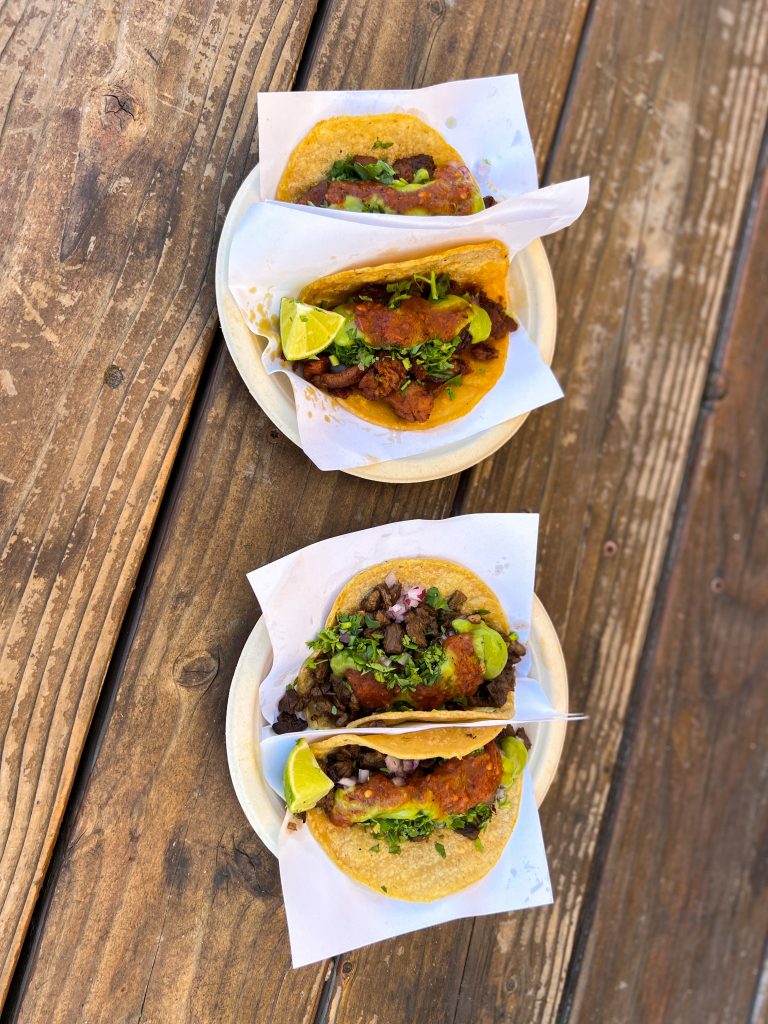
HOPPED: How did you decide what type of beer you wanted to serve at Mujeres?
CARMEN: I put together the beer menu. We wanted something super light for women who may think an IPA is too harsh for them. One of the first beers that we had was La Jefita, which is a hefeweizen. So we had a few beers that were our basic four, and then we wanted to do something more experimental. I personally enjoy beers that are a little more fruit-forward so we did that. I have women on the team that have different palates. So if they’re a hardcore IPA person, we’re gonna make have something for them.
HOPPED: When you brought your Head Brewer onboard, how did you talk to her about the type of beers you wanted to debut?
CARMEN: Sam has a lot of experience and education, and is worth every dollar and more. When she came here we sat down and talked about what our vision of the menu would be like. She knew we wanted to incorporate beers for Latina palates and she was excited for that challenge. She was ready to incorporate some beers with a Mexican flavor twist. It was a challenge, but I think it was exciting for her to work on. Like the Hola Saladito! Gose, I was ecstatic about how it turned out. She nailed it.
This is not a brewery where you’re gonna get five or ten hazy IPAs. There are a lot of great breweries in San Diego that specialize like that, but we have to have a balance. And not only that, balance is what our customers want.
I enjoy my Latina palette, and the beers we are making are for that audience. So that in itself makes us unique in the craft beer industry. We are staying true to our culture. When we started this project, my goal was to create things that no one else was doing. We started doing beer cocktails, we have a michelada bar downstairs that has 30 toppings because that’s how you get it in Mexico. We grew up with them, it’s a cultural thing, and it’s what we know.
We wanted to make a really strong beer that could be the base for our beer cocktails. Out of that evolved a margarita that we make out of the base of the beer. We have customers in here that don’t drink beer, but they love margaritas. It’s a unique thing, but our customers love it. We have a Moscow mule cocktail, but again we use the same beer base. We were getting creative.
HOPPED: What are some of the lessons learned in opening this brewery?
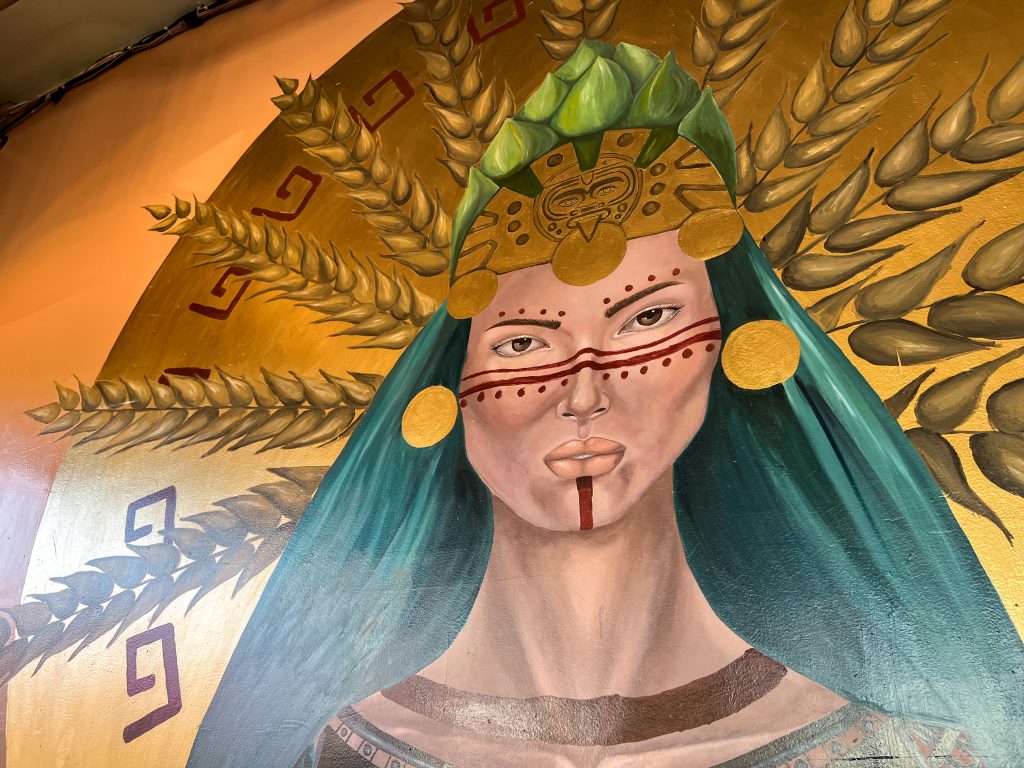
CARMEN: There has been learning the brew system. We are slowly understanding how temperature fluctuations and seasonal cycles impact the beer.
As for the front-of-house, since Mujeres really came from the club, there were a lot of lessons that came with opening this space. A lot of the people had never worked in a brewery before, so even just learning how to deal with different customers, how to cut a person off if they have been drinking too much, how to deal with someone disrespecting our staff, there have been a lot of growing pains. It can be a little intimidating for the front-of-house girls if there is a confrontation, but it has been something they have learned how to deal with and become stronger. We’re all women here and we’re open until ten o’clock at night, and there aren’t many businesses in the community. We have had to adjust our hours because of safety concerns for the staff, so that’s something we are dealing with as an all-female brewery.
HOPPED: How did you go about marketing the brewery?
CARMEN: So I come from a marketing background in real estate, and that’s very basic. Three bedrooms, two baths, okay great. But in this case, it is fun marketing. You’re talking about beer, you’re talking about events, you’re talking about your culture. You’re talking about women. It’s very organic. One thing though is that I make sure we have a professional photographer that comes in during different events or different days of the week and captures what’s going on in the space. We try to get pictures and capture the diversity of what’s going on here. I just tried to make a point to keep a balance between the type of content we post.
HOPPED: What things are you excited about coming up in the next few months?
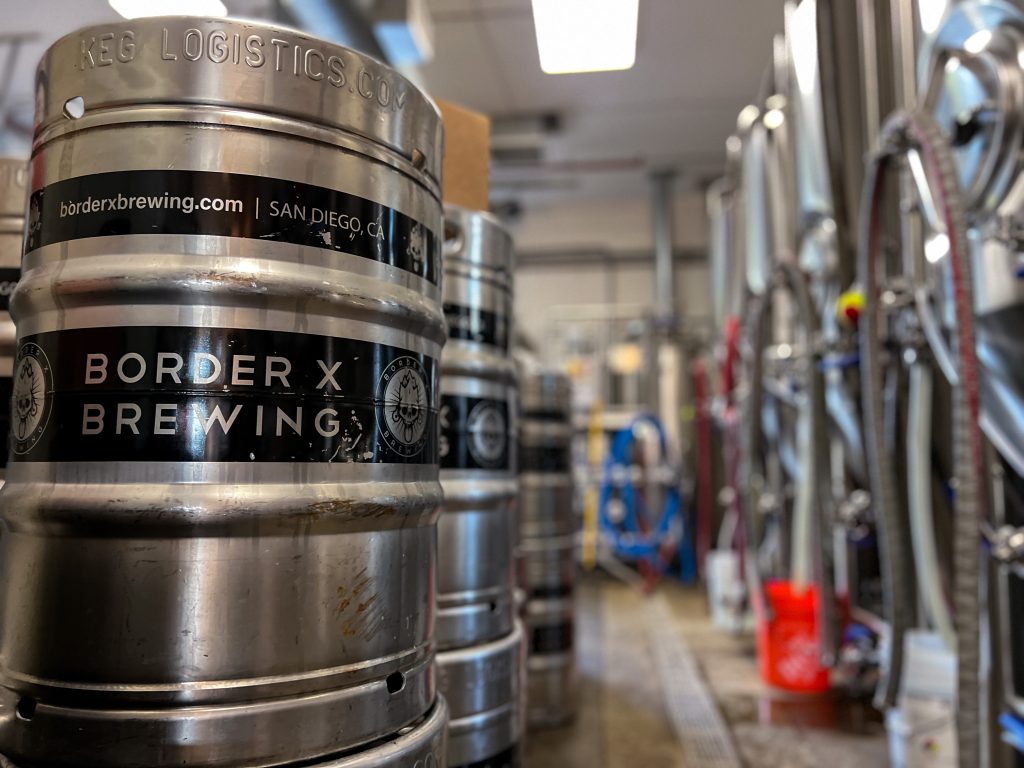
CARMEN: So the next phase is really the educational part. We have a waiting list of people that want an opportunity to come in and work, and we haven’t been able to accommodate them yet.
Going into fall, it is going to be a great time to continue and scale up our educational program. We are planning an internship program so women can be behind the scenes of beer.
Sam’s excited about that. One of the reasons she came to Mujeres is because she wanted to empower more women. She struggled when she first came into the beer industry. She wasn’t treated fairly and had different obstacles when getting into the industry, so she knows how important it is to create a space to empower women and give them an opportunity to get the experience they need.
HOPPED: What advice do you have for women, especially women of color, who may be interested in getting involved in the craft beer industry?
CARMEN: First things first, you have to show up. If you go to a local brewery, if there is a woman, whether a beertender or an owner, build that relationship. Don’t be afraid to explore and ask questions and get to know the people behind the bar.
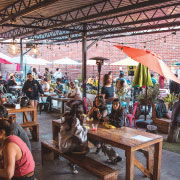
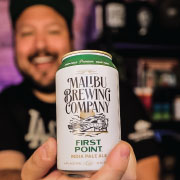
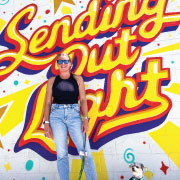
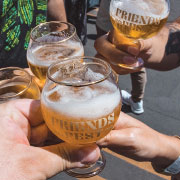
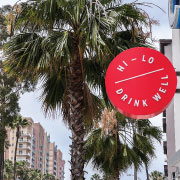
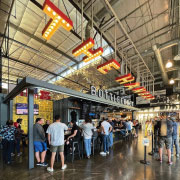
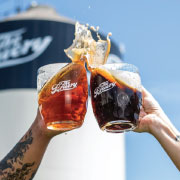
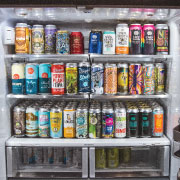
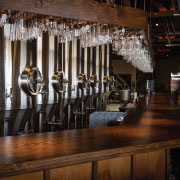
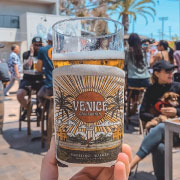
 Cambria Findley-Grubb
Cambria Findley-Grubb Mark Smolyar
Mark Smolyar